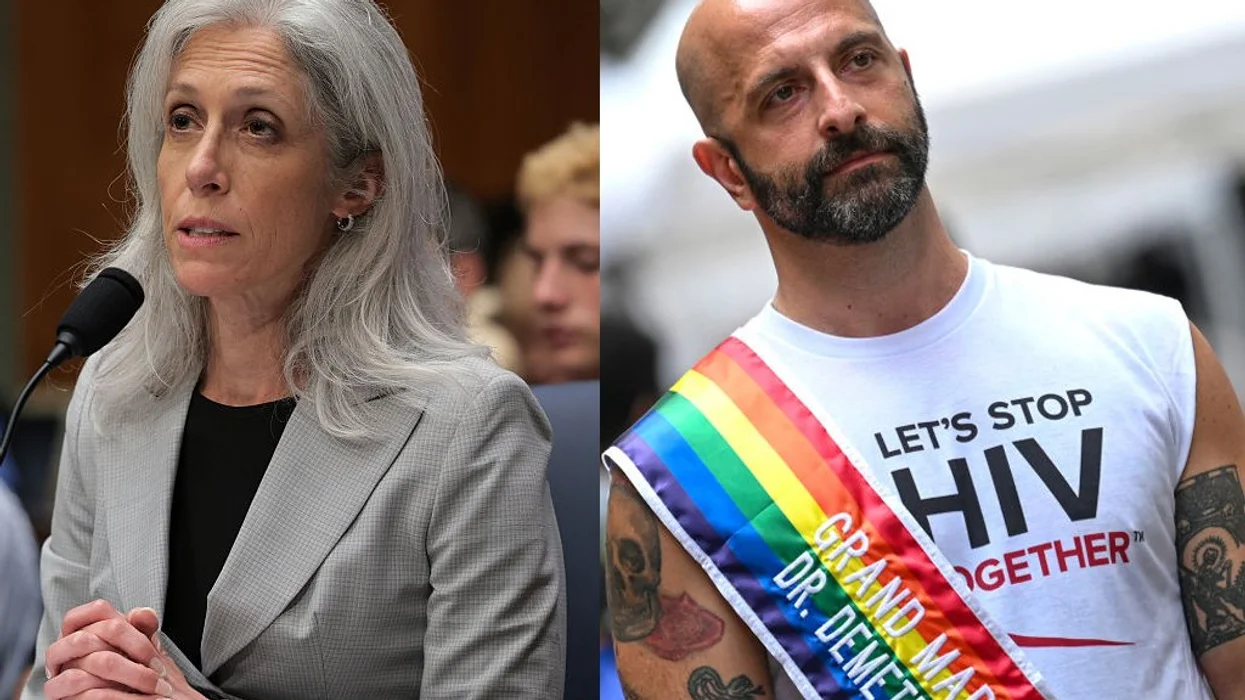The Environmental Protection Agency will formally report that it can't recover thousands of text messages from Administrator Gina McCarthy sought in a Freedom of Information Act lawsuit filed last year.
 Environmental Protection Agency Administrator Gina McCarthy prepares to sign new emission guidelines, June 2, 2014, at EPA headquarters in Washington. (AP Photo/ Evan Vucci)
Environmental Protection Agency Administrator Gina McCarthy prepares to sign new emission guidelines, June 2, 2014, at EPA headquarters in Washington. (AP Photo/ Evan Vucci)
The EPA will be informing the National Archives and Records Administration of the loss of the text messages sent from government-issued phone, just over a month after a federal judge admonished the agency.
“EPA is not aware of any evidence that federal records have been unlawfully destroyed,” EPA spokeswoman Laura Allen told TheBlaze Thursday. “Nevertheless, out of an abundance of caution, EPA decided to inform NARA of the information it reviewed, and notify NARA that EPA is not aware of any evidence that federal records were unlawfully destroyed.”
Last month, U.S. District Judge Rosemary M. Collyer wrote in a 19-page opinion that “it is implausible that EPA administrators would not have suspected the destruction of any federal records with the removal of over 5,000 agency text messages.”
The ruling concerned a FOIA lawsuit by the Competitive Enterprise Institute against the EPA over the missing 5,932 text messages of McCarthy from 2009 to 2012, when she was serving as an assistant administrator. One of her tasks in that job was overseeing the preservation of public records.
Allen said in the next few days, the EPA will send the letter to to National Archives that the information is not available after having done a review that included information to the agency’s upgrade of Microsoft Office 365 that affects the EPA's mobile devices.
The report to the National Archives could trigger an investigation into whether the messages are really gone and how they disappeared, said Chris Horner, attorney and senior fellow for CEI.
“The destruction of records is a criminal offense, a felony, with up to three years, which is why EPA is saying strange things like there is no evidence any records have been destroyed in the cyber-bonfire,” Horner said.
18 U.S. Code 2071 prohibits the destruction of federal records.
Horner said electronic records are public documents the same as paper records under the law.
“There is no distinction between a text message, instant message or email. There is no argument that a text is any different and not a record,” Horner said. “If that class of records were the legally indistinct email, can you imagine a court shrugging and saying yeah, go ahead, no problem? Of course not, which is why EPA realizes that getting caught poses a serious problem for them now.”
Horner said that CEI did obtain seven months worth of metadata, demonstrating the texts to and from McCarthy were with other EPA employees, and thus were not personal.
Allen, the EPA spokeswoman, said that text messages from McCarthy were of a personal nature, and argued that most text messages are not public records.
“First, text messages are inherently unlikely to qualify for preservation as a federal record, due to the inherent limitations of mobile device communications,” Allen said.
“Second, EPA has instructed employees since at least 2005 to save any content on mobile devices that qualifies for preservation as a federal record,” she said. “Third, EPA is not aware of any individual noncompliance with this guidance, and finally, even if such destruction occurred, it was likely not unlawful because text messages qualify as transitory records under NARA’s General Records Schedule 23-7 which may be deleted when no longer needed.”

 Environmental Protection Agency Administrator Gina McCarthy prepares to sign new emission guidelines, June 2, 2014, at EPA headquarters in Washington. (AP Photo/ Evan Vucci)
Environmental Protection Agency Administrator Gina McCarthy prepares to sign new emission guidelines, June 2, 2014, at EPA headquarters in Washington. (AP Photo/ Evan Vucci)





